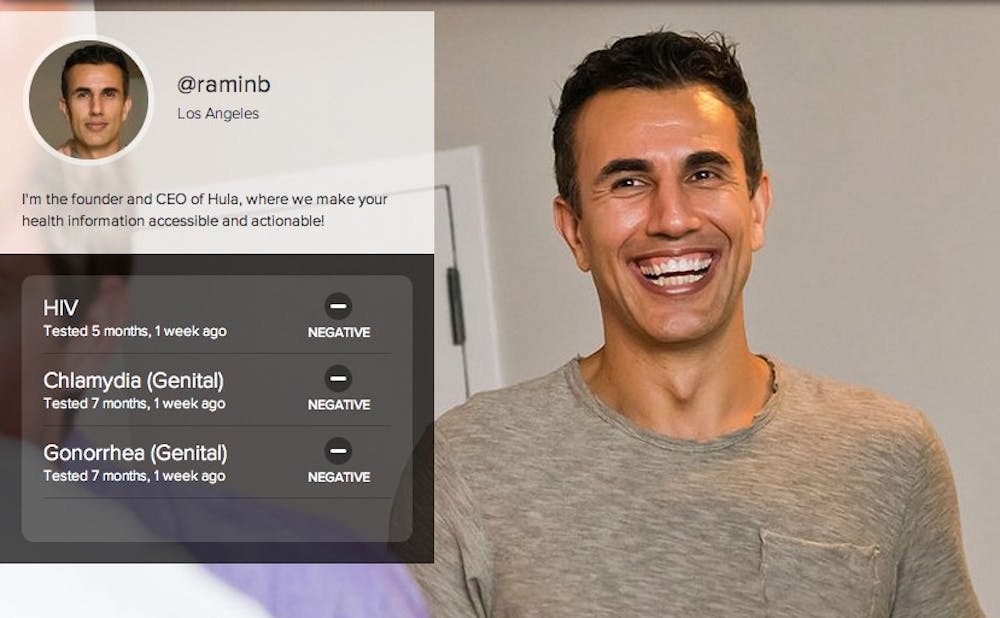The business of sexually transmitted disease testing has modernized with the advent of a result-sharing app.
A web service named Hula has been providing users with a way to receive and share their STD testing results with other people since 2010. The app, which was launched several months ago, also helps users find testing centers near them and reminds users when to get retested.
“It wraps up three important components of sexual health all into one free app,” said Hula medical adviser Jeffrey Klausner, professor of medicine in the division of infectious diseases and the program in global health at the University of California, Los Angeles.
Ramin Bastani, CEO and founder of Hula, said he first came up with the idea for the service when a girl slapped him in the face in response to him asking about her STD testing history.
“At that point I was like ‘What the hell is going on here? There’s got to be a better way for this conversation to happen,’” Bastani said. “And it didn’t take me long to realize that this was a much bigger problem than one person getting slapped one night.”
After users get their testing done, they can request that their results be sent to Hula instead of having to return to the clinic to pick them up. Bastani and Klausner both agreed that this aspect of Hula is an improvement on how testing has been previously handled.
“For decades they have been managing STD testing with ‘no news is good news,’ but now we have a way to end that,” Klausner said.
Bastani said he loves hearing stories that people share with him about how they use Hula. He mentioned one story in which a user wanted to meet up with someone they had met on Tinder but asked for the other person’s testing results via Hula first. That person tested positive for chlamydia and was successfully treated for it.
“[Hula is] helping find infections that people otherwise wouldn’t have known they had,” Klausner said.
That aspect of the app may prove to be a double-edged sword, said Cleo Estrera, nurse practitioner and women's health coordinator at the Duke Student Health Center. Since people might not test positive for an STD until up to 3 to 6 months after they acquire it, Hula might lull them into a false sense of security since their results are still negative on the app, she explained.
Estrera added that she is also concerned about the app’s privacy aspect.
“What happens if something happens with you and [another] person, and then that person broadcasts your results to whoever they want to?” Estrera said.
Bastani said that users start out with only a screen name displayed to the general public. They can choose to share their real names with people but can also revoke that information whenever they choose.
Bastani estimates that his app will have 100,000 users by the year’s end, including everyone from college students to senior citizens to possibly members of the porn industry in the future.
“We don’t care who’s using it, how they use it, who they’re having sex with or how they’re having sex,” Bastani said. “All we care about is that they have the right information at their fingertips to help them make better decisions.”
Get The Chronicle straight to your inbox
Signup for our weekly newsletter. Cancel at any time.

